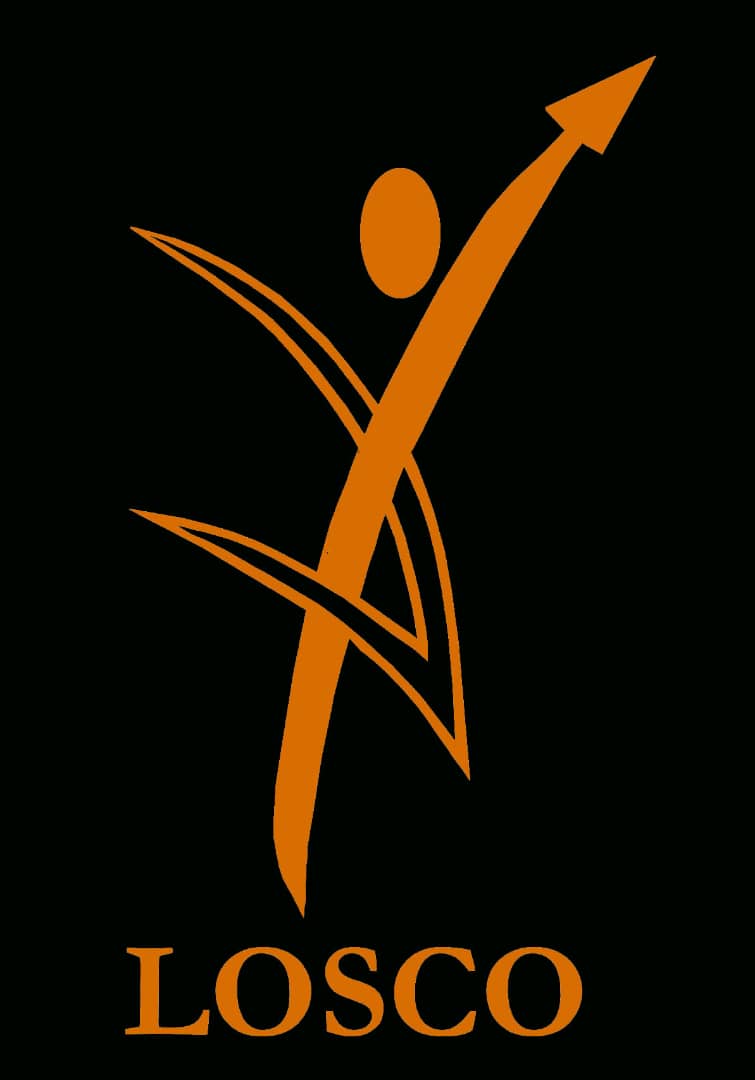News
LOSCO QUARTERLY HUMAN RIGHTS SITUATION ANALYSIS AND KEY ISSUES IN KIGEZI
April 1, 2025
Dear Human Rights Defenders, Actors and Partners in the Promotion and Protection of Human rights;
A Happy New Year!
Local Sustainable Communities Organisation (LOSCO) wishes to welcome you to the New year and the quarterly review of human rights quarterly situation and analysis hoping that all went on well through the last year as this year of elections brings everyone aboard for the elective participation and accountability, governance and rule of law at play.
LOSCO brings you some of the key highlights from last quarter in the context of human rights, key emerging issues and the environment of human rights defenders in Uganda and appreciates you for taking time off to think through what you can contribute to the promotion and protection of Human Rights, Governance and Rule of Law at the sub national, national and regional level as well as contributing to the Global Human Rights promotion as you reflect on the information shared.
Below are some of the highlighted issues:
KIGEZI SUB REGIONAL SITUATION:
MINISTER MUSASIZI BACKS BAN ON POLICE BONDS, WARNS CRIMINALS TO COUNT THEIR DAYS
RUBANDA: Minister of Finance (General Duties), Henry Musasizi, welcomed President Yoweri Museveni’s directive on the complete cessation of police bond issuance for criminals, describing it as a vital measure to curb criminality and enhance security within communities.
President Museveni explained that the decision was prompted by increasing insecurity, particularly theft and other petty crimes. He argued that the practice of granting police bonds to suspects especially in cases involving theft was exacerbating the problem by enabling alleged criminals to rejoin society before their cases were resolved.
KISORO TEENAGER BEDRIDDEN FOR TWO YEARS, FAMILY SEEKS HELP AFTER SPINAL INJURY
KISORO: A 38-year-old man from Buzeyi Village, Rukongi Parish, Nyarusiza Sub-County in Kisoro District is appealing for financial support to help his 14-year-old son, Manirunva Simon who has been bedridden for two years following a life-altering spinal injury.
Manirunva’s spinal cord got dislocated after being hit by a rolling stone during heavy rains in Nyarusiza Sub-County two years ago.
Both Nvuyekure Godfrey the victim’s father and Champaye Phiona his mother, say their son, Maniruva, the eldest of their five children, has been left paralyzed by the accident. His condition has deteriorated to the point where he cannot move, causing parts of his body, including his buttocks, to develop sores.
TOUGH ACTION AGAINST ELECTION VIOLENCE AHEAD OF 2026 POLLS LOOMS
KISORO: The Kisoro District Police Commander (DPC), Ben Niwamanya Kashumbusha warned of arrest to anyone attempting to assault, threaten, or harm voters during the upcoming 2026 elections strongly condemning any form of threats or assaults by politicians in their quest for victory.
Niwamanya, issued this warning while addressing the media at his office at Kisoro Police Station headquarters emphasizing that elections are a time for politicians to present their manifestos and campaign peacefully, not to engage in verbal or physical confrontations. He urged Kisoro residents to focus on productive activities to promote personal and community development.
RUKIGA MAN REMANDED FOR THREATENING POLICE OFFICER, PLEADS FOR FORGIVENESS
KABALE: The Kabale Chief Magistrates Court charged and remanded a 24-year-old man to Ndorwa Government Prison for threatening to kill a Uganda Police officer in Rukiga District.
Kabale Chief Magistrate, His Worship Derrick Byamugisha, heard that on 14th January 2025, Edmund Agaba, a resident of Rushebeya village, Kitojo Parish, Rwamucucu Sub-county in Rukiga District, threatened to harm ASP John Akankwasa, a police officer attached to the Rukiga District Police Station. The incident occurred in Murujanjara village, where Agaba allegedly acted with intent to intimidate, insult, or annoy the officer noting that Agaba’s actions are in violation of Section 77(1) of the Penal Code Act.
KISORO LEADERS CONDEMN CORRUPTION AND BROKEN PROMISES
KISORO: As the National Resistance Movement (NRM) prepared to commemorate its 39th Liberation Day, leaders from Kisoro District expressed dissatisfaction with the celebrations, accusing the government of failing to address key issues such as corruption where some leaders in Kisoro District criticized the expenses associated with the event, arguing that the funds could be better utilized to address pressing national issues. Baker Niyigaba, the Kisoro District Councilor for Persons with Disabilities (PWDs), condemned the government’s failure to tackle corruption and the embezzlement of public funds, which he said has significantly hampered service delivery across the country.
A SUSPECT LYNCHED, BODY MUTILATED BY ANGRY CROWD.
KANUNGU: A mob in Kanungu District lynched a 35-year-old man for allegedly robbing UGX 300,000 belonging to a fellow resident. Identified as Joseph according to eyewitnesses trespassed and gained access into the home of one Bajumwa Beatrice and made off with the cash. An alarm was raised hence attracting nearby people who included army officers on guard duties apprehended the suspect and handed him over to the Chairperson LC1 of Kihembe Central Mr. Kazoba Frank but before the police could intervene, the mob overpowered the area Chairperson and forcefully grabbed the suspect, ultimately killing him and later mutilated his body into pieces.
Source: https://westernpearlnews.com/suspected-thief-lynched-body-mutilated-by-angry-crowd/
FAMILY MEMBERS FACE MURDER CHARGES OVER LAND DISPUTE
KABALE: Kabale District Police arrested three suspects from the same family in connection with the alleged murder of a 60-year-old man Kawiti Africano after resistance from his family members, who demanded that he retrieve the land or purchase another piece of land to replace it. They resorted to threats and violence and use of force to regain back their land which gave birth to earlier offences of criminal trespass vide Buhara SD 06/07/10/2024 which was still under Investigations.
Source: https://westernpearlnews.com/family-members-face-murder-charges-over-land-dispute/
RUKUNGIRI YOUTH DECRY UNEMPLOYMENT CRISIS, URGE GOVERNMENT ACTION
RUKUNGIRI: The youth in Rukungiri District expressed frustration over the lack of employment opportunities, which they say has led to increased depression and drug abuse in the area.
Among those voicing their concerns are Akamumpa Raymond, a resident of Nyakiina Parish in Buyanja Town Council, and Tashobya Nicholas from Rukungiri Municipality. They noted that many educated youths struggle with depression due to unemployment, forcing some to turn to drug abuse.
These concerns were raised during the Boda Boda Cup tournament organized by Mwesigwa Mathias Rwabugumi, a hopeful candidate for the Rubabo County Member of Parliament seat.
The youth urged the government to consider both school dropouts and graduates when creating employment opportunities. They called for the establishment of industries that could absorb both skilled and semi-skilled workers.
LEADERS UNITE VOICES AGAINST SECTARIANISM
KABALE – A section of Political and Religious Leaders in Kabale district united their voices to condemn a vice of sectarianism in Kigezi region calling it an “enemy” to good leadership and socio development. They condemned the vice while speaking at different public gatherings. Sectarianism is defined as excessive attachment to a particular sect or party, especially in religion which leaders’ call for the need for combined efforts to end. This comes at a time where a section of priests from Kabale diocese received criticism from the general Public after releasing lists of intending Political candidates they support and want their church goers to vote in the fourth coming Parliamentary elections.
They said that Sectarianism deprives societies of getting able leaders especially if an able leader is from the minority group in the society asking locals to vote people’s capacities to deliver to electorates, not religious attachments, as effective service delivery is not linked to any religions but to a person’s capacity to lobby for the area they represent.
Source: https://www.apearlnews.net/national/kabale-leaders-unite-voices-against-sectarianism/
DOMESTIC VIOLENCE CLAIMS THE LIFE OF A 55 YEARS OLD MAN.
RUBANDA – The territorial Police in Rubanda are investigating circumstances surrounding the death of a 55 Years Old Man through assault by his matrimonial wife at Nyarurambi village Ikamiro Parish Muko Sub County Rubanda District. Julius Rwanyarare male adult aged 55 years, Mukiga by tribe, peasant and a resident of Nyarurambi Cell Ikamaro Parish Muko Sub County in the Rubanda District whereas the suspect is Nyangire Estali female adult, aged 51 years old, Mukiga by tribe, peasant, and a resident of Nyarurambi Cell Ikamaro Parish Muko Sub County in the Rubanda District.
A case of Assault was reported to Police by Byaruhanga Milton male adult aged 61 years old Mukiga by tribe Chairperson LC1 Nyarurambi Cell Ikamaro Parish Muko Sub County in Rubanda District and registered at Muko Police Station vide SD REF: 16/15/03/2025 and being investigated vide Rubanda Police CRB 105/2025 as Murder arising out of a domestic violence.
OVER 6,000 REFUGEES FLEE CONFLICT IN DRC
KISORO: Kisoro District has received over 6,000 refugees from the Democratic Republic of Congo (DRC) since the beginning of March due to escalating conflict in Eastern DRC and according to the Resident District Commissioner (RDC), Hajji Badru Ssebyalla the number of refugees entering Kisoro continues to rise daily as people flee hostilities in search of shelter and food.
In an Interview, Ssebyalla noted that the Nyakabande Transit Centre is now overcrowded. To manage the influx, authorities are transferring refugees from Nyakabande to other centers to create space for new arrivals as he cautioned Kisoro residents, particularly those in sub-counties and town councils near the border, against providing accommodation to refugees warning that some individuals may be fleeing as fighters, while others could be carrying illnesses or have intentions of destabilizing peace and security in Uganda, especially in Kisoro.
TO OPEN IN JULY 2025; The DISTRICT HOSPITAL PROMISES IMPROVED HEALTHCARE
RUBANDA: The Rubanda District LC5 Chairman, Ampeire Stephen Kasyaba, has revealed that the first-ever Rubanda District Hospital, located in Kamugongo, Rubanda West, Muko Sub-county, will be operational starting July 1, 2025.and confirmed that the central government has already allocated funds for paying medical staff salaries. He also revealed that the UPDF Engineering Brigade, which is overseeing the hospital’s construction, has assured them that the work will be completed on time.
With the hospital’s opening on the horizon, Rubanda residents can look forward to improved healthcare services, marking a significant milestone for the district.
MAID SENTENCED TO 40 YEARS IN PRISON FOR TORTURING A 4 YEAR MINOR.
KABALE /KAMPALA: The 37-year-old maid, Tumuhirwe Precious, who pleaded guilty of torturing a 4-year-old child, causing her grievous body harm was sentenced to 40 years in jail. Appearing before Kira Chief Magistrate Shallon Niwaha, Tumuhirwe faced charges of torture for the December 27, 2024 attack that happened at Kikoko Zone, Namataba Cell, Kirinya Ward in Wakiso District. She was employed as a housemaid arrested in Kabale, where she had fled after the assault of Claire Tumwekwa (the victim) the Minor in the home. The video, which shows Precious repeatedly assaulting the minor in a bathroom, triggered widespread condemnation, with calls for swift justice and tougher penalties for child abuse.
UGANDA NATIONAL METEOROLOGICAL AUTHORITY WARNS OF ABNORMAL RAINS, HAILSTORMS, AND STRONG WINDS THIS SEASON
The Uganda National Meteorological Authority has issued a warning about abnormal weather patterns this season, forecasting heavy rains, hailstorms, flash floods, lightning, and strong winds. The authority urged the public to take precautions against these extreme weather conditions, which could disrupt daily activities and cause damage to property.
Source: https://x.com/nbstv/status/1904166961757446347
M23 REBELS REJECT AMNESTY INTERNATIONAL’S CLAIMS ON SOUTH KIVU DEATH TOLL
GOMA: The M23 Rebels have strongly condemned and rejected what they call irresponsible misinformation from certain human rights organizations, particularly Amnesty International.
M23 spokesperson Lawrence Kanyuka dismissed the allegations, citing a communiqué from the DRC/Red Cross South Kivu dated March 20, 2025 refuting claims that 406 bodies were recovered in South Kivu province between February 17 and March 13, 2025, by the Red Cross.
He argued that the figures being circulated did not originate from the Red Cross, an organization known for its neutrality, impartiality, and discretion.
Kanyuka denounced what he called an attempt at manipulation and urged both the national and international community to disregard these “false allegations” frequently promoted by human rights organizations.
EAST CONGO CEASEFIRE IN TROUBLE AS REBELS STAY IN STRATEGIC TOWN
The ceasefire in eastern Congo is in jeopardy as M23 rebels continue to occupy the strategic town of Walikale, a key mining hub. Despite an agreement to withdraw, the rebels have stayed due to the presence of Congolese forces, delaying peace efforts. This disruption threatens supply routes and the region’s stability. The ongoing conflict has led Angola to end its mediation role, and a new African nation will take over the peace process. The situation highlights the challenges in achieving lasting peace in the region.
IN THE QUARTER,
Citizens in Kabale Area are concerned about public accountability and service delivery which entail human rights issues that include but not limited to;
- Parents’ denial to the VHTs to provide vaccination to children, most especially polio.
- Limited salaries and transportation allowances to the VHTs and refusal to pay them when contracts indicate paying workers for services that they do in the community.
- High expectations of the clients to be given services when referrals are done and the expenses involved
- Citizens report that there are no medicines in the facilities to give to the patients and they get burnt when they are expired.
- Inaccessibility (poor road network that limits service delivery) as a result of ragged terrain in Kigezi and the impact of heavy rains as a result of climate change.
- Limited power supply thus hindering the service delivery of pregnant mothers due to persistent power shutdowns
- Limited beds in labour rooms for pregnant mothers added to the rudeness of some midwives affecting the expectant mothers’ mental health.
- Limited trained teachers in schools and consistent absenteeism amongst the teachers lowering the education levels added to unaffordability of the grassroots parents’ payment of several school dues leading to children abandoning schools.
- Climate change has serious impact i.e. heavy rains wash away the temporary bridges and also limit mobility for the teachers and learners.
- Bribery and corruption while asking for votes is already taking a centre stage and the voters are still languishing in abject poverty which is a bad sign added to the escalating impact of religion on political landscape heading into the general election of 2026.
- No toilets for the physically challenged persons added to other services and inclusivity in planning and implementation processes.
- Limited manpower expected at the Health Centre II’s and III’s which breeds corruption and risky service delivery.
However; with the HUMAN RIGHTS BASED APPROACH TRAINING AS A MEANS OF PROMOTING AND PROTECTING THE RIGHTS OF VULNERABLE AND MINORITY GROUPS in Kigezi conducted by the ICGLR-RTF in collaboration with Uganda Police Force with support from British High Commission of Uganda (BHC) under the Project Uganda Open Societies Programme II: Accountability, Human Rights, Social Cohesion and Portfolio Strategic Fund to strengthen the capacity of Uganda Police Force and other actors in the Justice System on Human Rights Based Approach and Promoting the Rights of Vulnerable groups- (Women, Elders, Children, Persons with disabilities, refugees) including civil and political rights. As a result of consultative meetings with stakeholders in Justice system that included CSOs like LOSCO and developed the Human Rights Training Tools for building the capacity of Uganda Police Force, Uganda Prisons Service, Judiciary, Probation Office, Uganda Human Rights Commission, Electoral Commission and CSO Actors in the justice system of Uganda that bred a five days training on Human Rights Based Approach (HRBA) and Promoting the Rights of Vulnerable Groups in Kigezi Region (Elderly, Children, Persons with disabilities, Refugees) including Civil and Political Rights, its believed that several issues will be progressively addressed more emphasis placed on the observance of the 48hr Rule on detention of suspects and issues of torture of all kinds.
THANKS FOR READING! MAY YOU HAVE YOURSELF A GREAT QUARTER AHEAD!!!
For Immediate Release
PRESS STATEMENT
UGANDA: END UNABATED AND WORRYING RISE IN HUMAN RIGHTS VIOLATIONS AND ABUSES BY UNREGISTERED COMPANIES IN KABALE’S IRON ORE INDUSTRY
(Kabale, 24th October, 2024) — As the iron ore industry continues to expand rapidly in Kabale and the Kigezi region of Uganda, Local Communities Organisation (LOSCO) stands in solidarity with the people of the region and all Ugandan citizens to call for an end to the escalating human rights violations and abuses associated with the mining of this valuable resource. These mining activities have led to widespread destruction of property without compensation, increased security threats, and severe environmental degradation. LOSCO remains committed to actively engaging in public information campaigns to highlight and contribute to ending these human rights violations in Kabale.
Residents of Makanga Cell, Butobere Ward in Central Division, Kabale Municipality, have raised serious allegations against Local Council 1 Chairman, Wilson Agaba, for allegedly colluding with an unidentified Indian company engaged in iron ore mining in their area. They accuse him of bribing them with rice instead of ensuring the proper compensation process for the destruction of their properties caused by water runoff from the mining activities. Several affected individuals, including Promise Amumpeire, Judith Kirabo, Esau Mwikiriza, and Agnes Kiconco, all residents of Makanga, have reported that Agaba has facilitated the company’s operations without their knowledge, resulting in soil erosion, damage to their crops and houses, and displacement of residents. The environmental impact has been significant, with reports of non-stop noise pollution from Sino-trucks and tractors operating throughout the night, disrupting residents’ rest. Wilson Agaba, however, denies any wrongdoing, claiming ignorance of the specific Indian company involved. He states that he has already written to Kabale Municipal Council seeking more information. Kabale Municipal Council’s Senior Environment Officer, Alfred Ahimbisibwe, has acknowledged the mining activities but also admitted that the specific identity of the company remains unknown. The matter has been referred to the National Environmental Management Authority (NEMA), from which action is still pending.
“We cannot remain silent as communities are exploited and our environment is destroyed,” states Taremwa Albert, Executive Director. “We call on the relevant authorities to take swift and decisive action to protect the people and resources of Kabale.”
Furthermore, many mining companies abandon their operations without paying local casual workers, exploiting the community and leaving open excavation pits that become havens for criminals even when the Minister for Energy and Mineral Development Ruth Ssentamu Nankabirwa paid a visit in the region recently to assess the impact of these operations. Additionally, the youth contracted to load minerals onto trucks are not known to local leaders, posing a serious security risk. In light of these issues, we demand the following actions:
- The Office of the Town Clerk must reveal the identity of the mining company and ensure that proper compensation procedures are followed.
- The Mineral Protection Police should investigate the legality of these mining activities and release a report on their findings.
- The Environmental Protection Police must assess the current state of the environment and intervene to prevent further damage.
- The Uganda Human Rights Commission should lead an investigation into these human rights violations, holding accountable those responsible.
- The National Environment Management Authority (NEMA) must issue a statement and investigate the company’s legitimacy, establishing standard operating procedures (SOPs) to safeguard the communities and environment.
- The Ministry of Energy and Mineral Development should release a public list of licensed companies operating in the Kigezi region and take measures against those operating illegally to protect the community.
For More Information, Please Contact:
Mr. Taremwa Albert,
Executive Director
Phone: +256 772 935100
Email: info@loscoug.org
Maximizing Your Contributions and Your Influence in Local Advocacy Efforts
Embarking on a journey to support local causes not only enriches personal growth but also enhances the well-being of the community. Whether driven by a commitment to environmental conservation, social justice, human rights, or social welfare, engaging with local initiatives presents a unique opportunity to effect tangible change. From LOSCO, this guide outlines strategic steps to connect with and actively contribute to the causes closest to your heart, setting the stage for a rewarding advocacy journey.
Align With an Advocacy Group
The first step toward impactful activism involves aligning with organizations that reflect your core values and interests. Whether it’s through a grassroots campaign, a nonprofit entity, or a community-based group, this partnership offers a structured approach to making meaningful contributions. Such collaboration not only magnifies your efforts but also integrates you into a broader network of individuals sharing a common goal, thereby enhancing the collective journey toward societal change.
Deepen Your Understanding of Issues
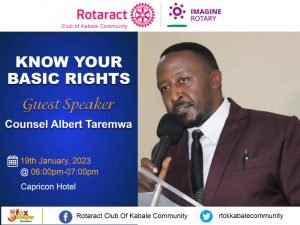 Deepening your understanding of the issues you are passionate about is crucial. Commit to educating yourself by accessing information from credible sources, participating in workshops, and engaging in discussions with both experts and fellow advocates. This pursuit of knowledge doesn’t just enrich your own perspective; it equips you with the necessary tools to advocate more effectively and inspire others to support the cause, including vital human rights issues that affect communities globally.
Deepening your understanding of the issues you are passionate about is crucial. Commit to educating yourself by accessing information from credible sources, participating in workshops, and engaging in discussions with both experts and fellow advocates. This pursuit of knowledge doesn’t just enrich your own perspective; it equips you with the necessary tools to advocate more effectively and inspire others to support the cause, including vital human rights issues that affect communities globally.
Start a Charitable Foundation
For those whose dedication to a cause identifies an unmet need, establishing a nonprofit organization can serve as a bridge to action. This significant endeavor requires meticulous planning, effective fundraising, and adherence to legal guidelines to lay a strong foundation. Leading a nonprofit allows you to directly influence change and provides a platform for others to join in supporting a shared vision, amplifying the impact on the community.
Engage and Advocate
Show your commitment through active participation in fundraisers, rallies, and events that promote awareness and solidarity. Such involvement not only raises the profile of the cause but also builds a sense of community among its supporters, strengthening the collective determination to achieve lasting change. Through these actions, you advocate for the issues at heart, including the promotion and protection of human rights, drawing the necessary public and financial support.
Ramp Up Fundraising
Redefine fundraising by tapping into various avenues such as crowdfunding, applying for grants, and seeking sponsorships. The key to this strategy is creating a fantastic landing page on your site to get donations, making it straightforward for supporters to contribute financially. This technological approach not only simplifies the donation process but also reaches potential donors, significantly boosting the fundraising capacity for your cause.
Mobilize Personal Connections
Utilizing personal networks can profoundly expand the influence of your advocacy. Share your experiences and insights with friends and family, inviting them to participate in related events and discussions. This approach not only heightens awareness of the cause, particularly human rights issues, but also potentially enlarges the support base. Cultivating this community of advocates leads to a multiplier effect on the impact of your collective actions.
Commit Your Own Resources
Volunteering your time and offering your skills are essential in bolstering the 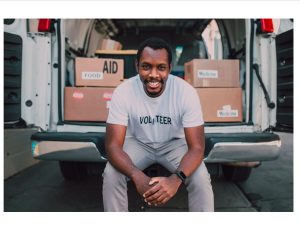 efforts of organizations that align with your values. Regular financial donations further underpin the critical activities these groups undertake. Your direct participation ensures the continuity of their impactful work, driving progress towards shared objectives. Such commitment aids in maintaining momentum toward achieving the causes you passionately support. Together, your contributions and involvement act as a cornerstone for sustained development and success in initiatives close to your heart.
efforts of organizations that align with your values. Regular financial donations further underpin the critical activities these groups undertake. Your direct participation ensures the continuity of their impactful work, driving progress towards shared objectives. Such commitment aids in maintaining momentum toward achieving the causes you passionately support. Together, your contributions and involvement act as a cornerstone for sustained development and success in initiatives close to your heart.
Your contribution to local causes requires a well-thought-out strategy to effect real change. Every action you take, big or small, adds to a larger movement of transformative progress, showcasing the strength of personal and shared endeavors in shaping a more just society. Begin with a simple action today, becoming the spark that ignites a chain of impactful deeds. These efforts collectively forge a path towards a community that is both stronger and fairer for all. Your initiative today sets the foundation for a legacy of positive change in your community.
NEXT ARTICLE
For Immediate Release
INVESTIGATE WORRYING TREND OF CONTINUED EXTRAJUDICIAL KILLINGS OF BODA BODA RIDERS IN KISORO DISTRICT AND THE SURROUNDING AREAS.
(Kabale 20th April 2022) Local Sustainable Communities Organisation (LOSCO) and its partners Kisoro Concern for Marginalised People organisation (KCOMPO) are deeply concerned with the escalation in extra judicial killings of Boda Boda riders in Kabale and surrounding areas and we are issuing this statement to detail the occurrence and call for specific and urgent investigations into this emerging pattern. This Started in the month of April 2022 and Police has not put any effort to have this mitigated even with the installation of traffic cameras.
Rebels from the M23 group on 10th April 2022[1] announced their retreat from villages captured in eastern Democratic Republic of the Congo last week following clashes with government troops in the Rutshuru region as fighting between the rebels and soldiers flared up on the 13th April 2022 after several days of calm, as rebels from the (M23) took control of around a dozen villages in Rutshuru territory in North Kivu province, and the influx of refugees from the war affected areas continued to increase through the border point of Bunagana where an average of 200 refugees enter the District of Kisoro on a daily basis and are hosted at Nyakabande Refugee Camp.
Kisoro district has turned out to be an -insecure place for boda boda riders following continuous attacks by unknown criminals. The riders in the district are now living in fear following criminals who target their lives and motorcycles. The Police in Kisoro District are allegedly hunting for unidentified assailants who allegedly killed a motorcyclist and took off with his motorcycle. Davis Ndayisenga 28 years a boda boda rider and resident of Nyabitare village in Rwaramba Parish, Nyakinama Sub County lost his life on the night of 14th April 2022 after the deceased was hired by yet unidentified man who allegedly hit him using the 10-kilogram sledgehammer from his stage of operation opposite Miami Hotel in Kisoro Municipality on the fateful evening and was later found lying near the road in Rwaramba village, Nyakinama Sub County unconscious and his motorcycle taken. A case of aggravated murder was registered at Kisoro Central Police Station under reference number CRB 215/2022 to help in investigations as confirmed by the Kigezi Regional Police Spokesman Elly Maate in an interview.
The Kisoro Boda Boda General secretary Mr. Batumukoraho said that on 4th April 2022, Karenzi James a resident of Sagitwe village Mabungo parish Nyarusiza sub county was attacked by unknown people and left him unconscious before they disappeared with his new Bajaj Boxer Reg No. UFN346/L and has since been transferred to Mbarara Regional Referral Hospital for further management. Another youth victim identified as a one “Ivan” in his 20’s from Sagitwe Mabungo parish Nyarusiza Sub County who operates at Travellers stage in Kisoro municipality he says was hit by criminals using a blunt object and left him unconscious before they fled with his motorcycle. Mbarushimana Philip a resident of Gikobero, Nteko in Nyabwishenya Sub County also of Kindly service Stage died after unknown persons in Rubuguri town council burned him together with his motorcycle into ashes. It was also revealed that there are more than 8 members of boda boda industry who have developed mental issues because of being attacked by iron bar hitmen that target their heads and other attacks are not recorded because they happen in farther places.
Boda Boda riders are low-income earners who are majorly youth with young families and are the breadwinners. This is an alternative source of income for most of the unemployed youth who acquire them through credit facilities by staking their properties. This scourge threatens their survival stability as well as those they care about.
Article 22 of the Constitution of Uganda provides for Protection of right to life. This is at Stake for these victims as well as Article 40 which provides for Economic Rights; where the incomes and economic stability of the industry beneficiaries in this part of the country are being threatened, the same fundamental rights embolden the very peaceful democratic principles any society thrives on which the Government is obligated to respect, protect, and fulfill.
We therefore recommend that;
- The Police carry out thorough investigations to find the underlying cause of the issues arising and bring the culprits through the full extent of the law.
- The Boda Boda leadership plays a strict observance and collaborative role with the Security Organs to identify the wrong players in the industry.
- The Media fraternity plays an awareness role for the safety of communities through targeted messages.
- The local Authorities ensure that communities are vigilant and report any suspicious persons identified in for proper screening.
- The Security Ministry tightens the security in the area and the checkpoints for the Incoming refugees screening which could be an entry point for these assailants.
- The Government establishes a compensation plan for the affected families and gives psycho-social support to the victims against depression
For more information, please contact:
Mr. Taremwa Albert – Executive Director – LOSCO – +256772935100 – albert.t@loscoug.org
Mr. Mbereyinka Bernard – Programs Coordinator – KCOMPO – +256770917808 – rwabbernard@gmail.com
[1] shorturl.at/jmFU5
NEXT
The Forum on the participation of NGOs in the 71st session of the African Commission on Human and Peoples’ Rights
Sub regional update on democracy, rule of law and human rights in East and Horn of Africa
As the continent grapples with a post covid 19 period, democracy, rule of law and realisation of human rights continue to be tested in the East and Horn of Africa. The region continues to witness a downward trend with increased reports of violations of the rights to freedoms of opinion and expression, association, and peaceful assembly. Despite risks and threats, human rights defenders continue their work to promote and protect human rights.
Burundi’s civic and democratic space remains severely restricted. While President Evariste Ndayishimiye made a few attempts to release pressure over civil society and Burundian citizens in general, including by releasing prisoners in January 2022, some HRDs arrested in the aftermath of the 2015 political crisis remain in jail. The government continues to exert its control and curtail the rights to freedoms of expression, peaceful assembly, and association. Reports of extrajudicial killings, arbitrary arrest, torture, and enforced disappearances of opposition members and government persist. Impunity remains widespread, including for violations and abuses related to the 2015 political crisis.
Djibouti and Eritrea remain the most repressive governments in the sub-region. The rights to free expression, association, and peaceful assembly continue to be severely restricted, making it virtually impossible for independent human rights organisations or individual HRDs to operate in the country.
The Ethiopian conflict has wreaked havoc on millions of people in Tigray and the neighbouring regions of Afar and Amhara, as well as in Benishangul Gumuz and Oromia, which continue to experience intercommunal conflict and localised violence. Gross and systematic violations and abuses, including attacks against civilians, sexual violence, arbitrary arrests, and ethnic cleansing, continue to occur. Ethiopian citizens’ enjoyment of their freedom of expression has further declined during the reporting period. Ethiopian authorities declared a nationwide state of emergency on 4 November, giving the government broad powers that increase the risk of arbitrary arrest and detention of at-risk communities. Several journalists have been harassed, intimidated, or arrested. The government has made a few positive steps recently, including declaring a ceasefire to allow relief to reach afflicted citizens and releasing several political opposition members from prison. The state of emergency was lifted in early 2022. Recently, Prime Minister Abiy Ahmed has pointed to talks with the Tigray People’s Liberation Front (TPLF), increasing prospects for peace.
Kenya is set to hold general elections in August 2022. The pre-election period is characterised by grave violations, including extrajudicial killings, enforced disappearances, and torture often committed by security forces. Gender-based violence, primarily against women and girls, continues, and the LGBTQI community continues to be targeted. To date, Kenyan authorities have used the Covid-19 pandemic as an excuse to restrict freedom of peaceful assembly. In the reporting period, the Magistrate Court in Mombasa found six activists guilty of illegally gathering and failing to maintain physical distances in a public place.
Rwanda continues to stifle its civic space and target those it perceives as critics. Arbitrary arrests, torture, threats, and unfair trials remain commonplace for political opponents, critics, journalists, and bloggers. Several critics continued to be targeted in this reporting period, including Paul Rusesabagina. The civic space environment does not allow for criticism, and as a result, citizens, journalists, media, and civil society self-censor.
In Somalia, the presidential election originally scheduled to take place in late 2020 is postponed until an agreement is reached. The lower house elections, initially scheduled for November to December 2021, have been postponed, and the deadline continues to be further extended. During the reporting period, the right to freedom of opinion and expression remained limited, with both state and non-state actors targeting journalists. Several journalists were harassed, abused, and arbitrarily arrested. In Somaliland, authorities increased the censorship of journalists and the media.
In South Sudan, concerns have been raised over the ongoing conflict and the possibility of resumption of the armed conflict at national level. Gross human rights violations and abuses of international humanitarian law continue, including rape, sexual and gender-based violence (SGBV), and increased attacks on humanitarian workers and convoys. An increase in violence in Upper Nile State and other parts of the country threatens the 2018 peace agreement (R-ARCSS). On 22 March 2022, the main opposition force, Sudan People’s Liberation Movement/Army in Opposition (SPLM/A-IO), suspended its participation in the security mechanisms tasked with overseeing the implementation of the R-ARCSS. SPLM/ A-IO claimed the suspension was based on the security mechanism’s ineffectiveness in implementing the peace agreement. On 31 March 2022, the UN Human Rights Council adopted a resolution that extended the mandate of its Commission on Human Rights in South Sudan (CHRSS). Civic space is increasingly restricted as the government continues to crack down on journalists and government critics.
Sudan’s humanitarian, security, and economic situation has been deteriorating since the coup on 25 October 2021. Security forces continue to violently suppress protests and target protestors. The country has been immersed in a political and social crisis since the beginning of January, following the resignation of Abdallah Hamdok as prime minister of the transitional period. The country remains without a functioning government. Several protestors are held without charges and are refused access to their lawyers and families. Moreover, the value of Sudan’s currency is depreciating. Consequently, the prices of bread, fuel, electricity, health care and public transport have all skyrocketed. UN Special Representative Volker Perthes warned that while the protests began as an “anti-coup protest,” they developed an additional socio-economic character. Additionally, intercommunal violence in Darfur has intensified.
Since the swearing in of President Samia Suluhu Hassan, in March 2021, Tanzania has taken positive measures to improve its civic space. The government issued new publishing licenses to four newspapers banned during the late President John Magufuli’s rule. Additionally, it announced its intention to amend the restrictive Media Services Act (2016). President Samia Suluhu met with Tundu Lissu, the exiled opposition figure residing in Belgium. Authorities also freed opposition leader Freeman Mbowe and his co-accused after the Director of Public Prosecutions submitted a motion to dismiss the terrorist accusations against them. Despite the positive measures taken, the situation remains tense for media freedom. In the first two months of 2022, eight journalists were arrested.
The human rights situation in Uganda deteriorated in the reporting period. Restrictions on critics and opposition leaders have increased. Security forces arbitrarily detained, abducted, and tortured critics and political opponents. In December 2021, author Kakwenza Rukirabasaija was kidnapped and tortured whilst held incommunicado. Further, the rights to freedoms of opinion and expression, peaceful assembly, and association are increasingly under pressure. The authorities targeted and arrested several journalists and raided two media houses. The main opposition leader Robert Kyagulanyi, also known as Bobi Wine, was under house arrest ahead of his scheduled campaign for the by-elections in December. To date, close to 30 of the 54 NGOs suspended arbitrarily by the NGO Bureau continue to be under indefinite suspension. Chapter Four Uganda challenged the arbitrary actions of the NGO Bureau; courts are yet to rule on the matter. HRDs and journalists face arrest, harassment, intimidation, and assault in reprisal for their work.
Recommendations
Considering the updates and trends observed, DefendDefenders makes the following recommendations for action by the African Commission on Human and Peoples’ Rights:
- Urge all member States to ensure the protection of human rights defenders, notably by observing the African Charter on Human and Peoples’ Rights;
- Call on all member States to adopt specific legislative measures to recognise and protect the status of HRDs, and provide a working environment conducive for civil society, as per Res. 376 (LX) 2017 adopted by the Commission during its 60th Ordinary Session Niamey, Niger;
- Urge member States to cease the harassment and arbitrary detention of HRDs, including those working on LGBT rights;
- Call on States to abide by the Guidelines on Freedom of Association and Assembly adopted by the Commission during its 60th ordinary session;
- Call on all member States who have not done so to deposit the declaration under article 34 (6) of the protocol of the African Court on Human and Peoples’ Rights to allow individuals and NGOs to directly submit their cases to the Court;
- Call on the Federal Government of Ethiopia through independent and impartial bodies to investigate allegations of human rights violations thoroughly and effectively and to hold those responsible accountable, and urge the government to cooperate with African and international mechanisms, including the African Commission-established Commission of Inquiry on Tigray and the International Commission of Human Rights Experts on Ethiopia established by the UN Human Rights Council;
- Adopt a resolution that strongly condemns the military coup in Sudan and calls for restoration of the civilian-led Transitional Government and urges respect for human rights and fundamental freedoms including the right to freedom of association and peaceful assembly; and
- Adopt a resolution urging, among other things, the government of South Sudan to immediately establish and operationalise the Hybrid Court for South Sudan and other transitional justice institutions as per Chapter V of the Revitalised Peace Agreement (R-ARCSS), and to ensure accountability for crimes committed since 2013, and to put an immediate end to harassment, intimidation, and repression, including by the National Security Service, of independent human rights actors and those reporting on human rights in the country.
NEXT
CIVIL SOCIETY ORGANIZATIONS AND HUMAN RIGHTS CULTURE
Abstract
Civil society plays an important role in the development and support of public policies, raises awareness of fundamental rights, monitors violations of human rights, and provides services to vulnerable communities. It also plays a role in monitoring government and public sector through checks and balances on service delivery thus holding government accountable to the citizens.
CSOs include ‘NGOs’, CBOs and their many networks and coalitions, trade unions, loose coalitions, faith based organisations, journalists, individual activists and other forms of mostly urban-based forms of collaborative undertakings, such as professional associations. NGO’s and CBOs appear to often be a donor-dependent part of civil society, with staff, vehicles, projects, and agendas that ordinary people do not always associate with, or feel close to where accountability to donors often takes precedence over accountability to the local population. 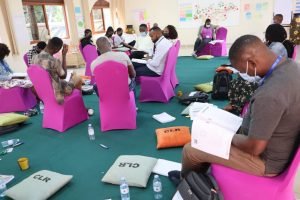 At the regional level, Article 5(e) of the Treaty covers issues of mainstreaming gender into all EAC endeavors, while Article 121 and 122 emphasize the role of women in socio-economic development in the Partner States. Throughout the country, women and gender diverse people’s organisations have campaigned against violence against women through providing legal advice and assistance to women and training police, judges, and prosecutors on issues of gender based violence.
At the regional level, Article 5(e) of the Treaty covers issues of mainstreaming gender into all EAC endeavors, while Article 121 and 122 emphasize the role of women in socio-economic development in the Partner States. Throughout the country, women and gender diverse people’s organisations have campaigned against violence against women through providing legal advice and assistance to women and training police, judges, and prosecutors on issues of gender based violence.
The privileges of Civil society include; promoting the notion of democracy through actual activism, increases the pressure on the state and politicians to actually listen to the needs and demands of its citizens, increases plurality and provides a voice to an often disenfranchised and discriminated section of a society and is the only truly grassroots organisation.
However, if civil society does not fulfill one of their main responsibilities to hold government accountable then good governance will be hampered. If the view of certain civil society organizations does not represent the majority of the society’s views and influence government decision making through corrupt and back door methods.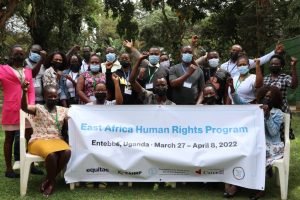
In short, civil society is a key player in creating the conditions for the realization of human rights. It promotes human rights discourse that validates rights norms, particularly by including devalued and invisible groups.
Civil society creates and recreates the conditions for validating and realizing human rights. Which include: (1) providing a sphere of action for all social groups; (2) making injustice public; (3) protecting private spaces from state and market incursion; (4) intervening and interacting directly with legal and political systems; (5) driving social innovation, and providing a discourse of plurality and (6) Demonstrate Possibilities for Change which can be considered by duty Bearers. Human rights discourse must be practical, responsive and accessible to a plurality of perspectives. This discourse needs to engage devalued and invisible groups as proponents for the change that they perceive as necessary to justice.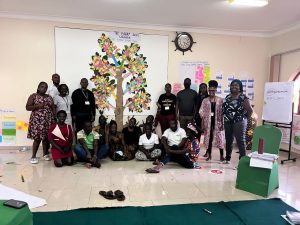
These and many more covered on the two week’s HRE Training under EAHRP supported by EQUITAS.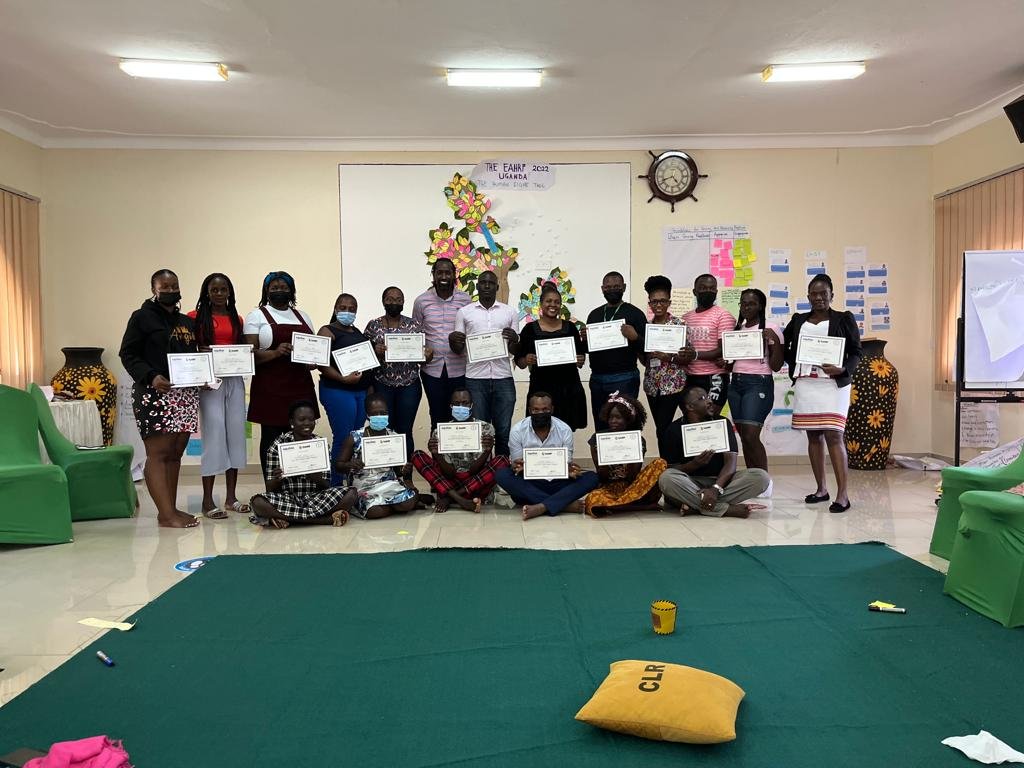
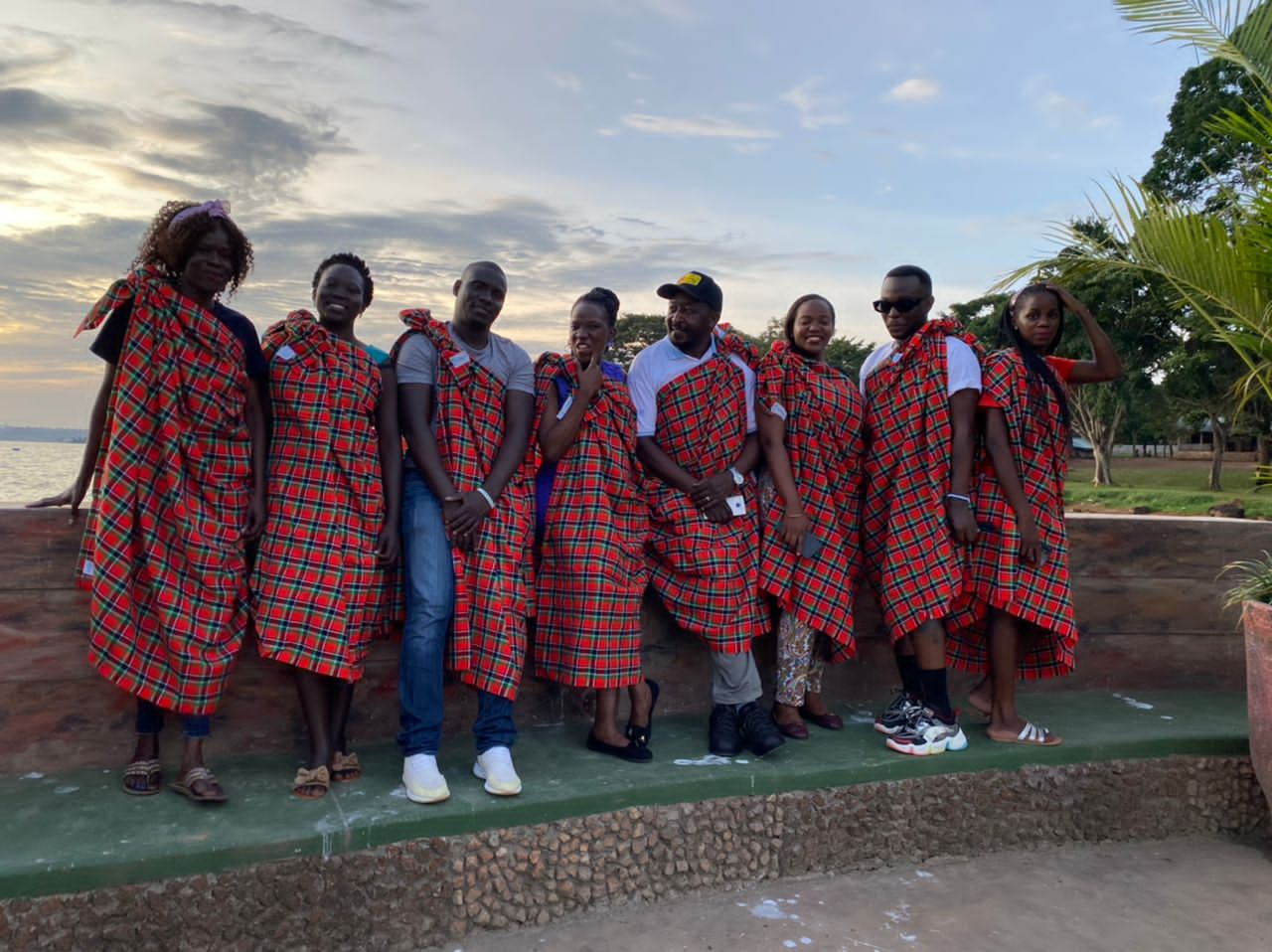
NEXT
MARGINALISED GROUP REPRESENTATIVES MENTORED IN AN ENGAGEMENT SPACE FOR DUTY BEARERS AND RIGHTS HOLDERS IN KABALE
African Youth Development Link in partnership with CIPESA Uganda, Show Abilities Uganda (SAU), and Rwenzori Peace Bridge of Reconciliation (RPBR) with support from Freedom House are implementing the ‘Rights and Justice Activity Election Sub-group (RAJA) Project, which is aimed at increasing participation of marginalized groups (Youth, PWDs, Elders, key populations, workers) in Electoral processes. Under the project, the subgroups held a mentorship engagement space for rights holders in the district of Kabale on Thursday 17th March 2022 in Partnership with Local Sustainable Communities Organisation (LOSCO). The purpose of the mentorship engagement space for duty bearers and rights holders in Kabale was to create a platform for strategizing and prioritizing issues of persons with disabilities in the policy reform process. In general, these spaces will be used to generate and document issues relating to the challenges that limit the participation of marginalized interest groups in the electoral process.
The Goal of the engagement was “To contribute to the inclusion of marginalized groups (youth, PWDs, Elders, key populations, workers) in Electoral processes in Uganda” 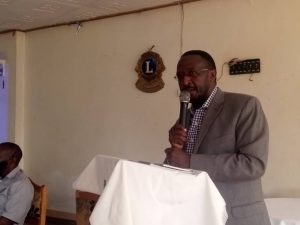
And the Objectives were;
To document issues challenging the participation of marginalized groups in the electoral processes
To generate action points on promoting inclusiveness of marginalized groups in Elections which will further be used to enrich the policy paper on addressing the issues identified.
The recently celebrated International Women’s day’s theme was “Gender equality for a sustainable tomorrow” and the global theme was “Break the bias-imagine a gender equal world.” In the case of Uganda, for example, the percentage of women in cabinet from increased from 27% to 43%. Women also constitute 43% of Local Government positions and 33% of parliamentary seats. Women also occupy prime positions in government such as office of the Vice president, prime minister, deputy speaker, serious government parastatals and the case of PLWDs is It is estimated that 15% of the world’s population live with some form of disability and that prevalence is higher among women, as about 1 in 5 women 18 years and older live with one. In 2014, Number of males 2-14 years with a disability was higher than that of females by 43,000. For 15 years and above, the number of females with a disability was nearly 1.5 times more. 36% PWDs. 36% PWDs NEARLY 1.4M persons 5 years and above were identified to be having multiple disabilities. Reports indicate that the representation of women from organizations of persons with disabilities tends also to be low in national coordination mechanisms on disability matters” and that their representation “in national machinery for gender equality is even lower. Disability prevalence rate in Uganda indicates that among persons aged 5 years 14% & above in Uganda in 2014 where 15% are women and 12% men. The proportion of persons aged 5 years and above who had difficulty seeing was higher compared to the other activity domains where 7.4% were women and 5.4% men.
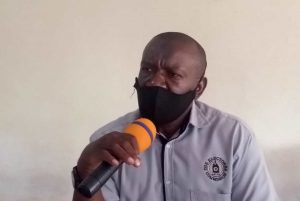 “In 2016, 32% of the eligible voters did not vote and there is need to dissect that number into the demographics to determine the actual number of Youths, Women, PLWDs” – Mr. Naduli Musisi Ahmed – DEA – Kabale
“In 2016, 32% of the eligible voters did not vote and there is need to dissect that number into the demographics to determine the actual number of Youths, Women, PLWDs” – Mr. Naduli Musisi Ahmed – DEA – Kabale
THE CHALLENGES IDENTIFIED INCLUDED;
(i) There are issues related to finances where the Nomination fees bar many able leaders from the electoral processes because there is no steady inflow of return on investment, which is seen by many as a stumbling block. Elections in Uganda have shifted financially which has crippled the marginalised groups.
(ii) The consistent lack of information on the Electoral Processes and activities due to mobilisation issues and/or apathy. This is also coupled with inadequate voter education that leaves a big gap in the processes.
(iii) Another identified issue is concerned with limited will by the identified groups to participate in Electoral Processes due to the concerns of remunerations at different levels where facilitation is in theory and never realised practically.
(iv) Due to limited representation, the PLWDs leaders and representatives are non-responsive to the issues that affect their constituency as well as limited sensitisation among the PWDs and also the representation at the National Level is much lacking with ONLY two Members of Parliament for the entire Country that don’t always get to the Grassroots for evidence based legislation.Large Area of Coverage that is not consistent with the facilitation availed for the work plans, which limits both service delivery and Monitoring. This is coupled with the Representative MPs that do not have manifestos.
(vi) Urban Mentality that keeps the youth in Urban Areas rather than rural Areas makes it burdensome to build their capacity in democratic principles and activate the democratic structures.
(vii) GBV from Women’s homes cause family breakdowns and Divorce, which is because women are both under rated and undermined in their leadership positions.
(viii) Overdependence on male gender limiting women’s leadership and financial capacity. This is also a catalyst for Sex demands on both sides, which is an issue that needs to be handled expeditiously.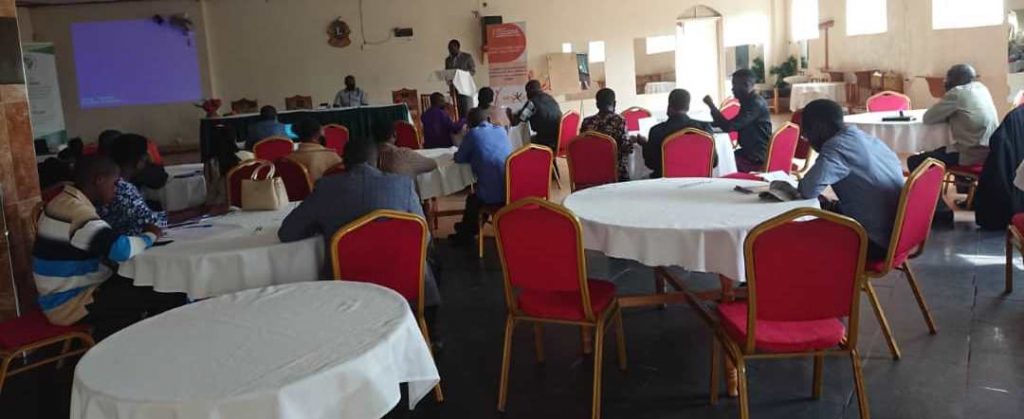
RECOMMENDATIONS
(i) Leaders for the marginalised groups of people need to give feedback concerning the issues raised from the National Level downwards. All the categories of people need to be ably represented.
(ii) Continuous Civic Education by the National Human Rights Council and this should be introduced at lower Education levels to involve the knowledge and participation of pupils and students at all levels. It makes a lot of sense to inculcate it in the education curriculum.
(iii) The increased and improved communication modes would play a big role where information needs to be disseminated through Print Media, Radios, and Televisions, which can be done through partnerships.
(iv) The need to address Administration issues through continued empowerment of the PLWDs along other marginalised groups and intentionally emphasizing Education inclusivity for Equal Service Delivery. This can be done through Popularising PWD Act, Youth Act, Women Act and deliberately increasing the efforts to induct the Elected Persons.
(v) Continuous Voter Education to promote patriotism by Electoral Commission. This also helps in reducing the cost of carrying out the Electoral Activities and Processes.
(vi) Continuous Public awareness on the issues pertaining to the Rights and Responsibilities as well as the information sharing amongst the Rights Holders and Duty Bearers. Access to information should be improved and Pluralism for change in systems to mitigate dependency syndrome.
(vii) All the Groups MUST get involved in the Budget Processes for ownership of the program implementation and Monitoring.
(viii) An introduction of Online Monitoring would go a long way to reduce the Mobility and increase participation. This can also be achieved through increasing platform opportunities for conversations.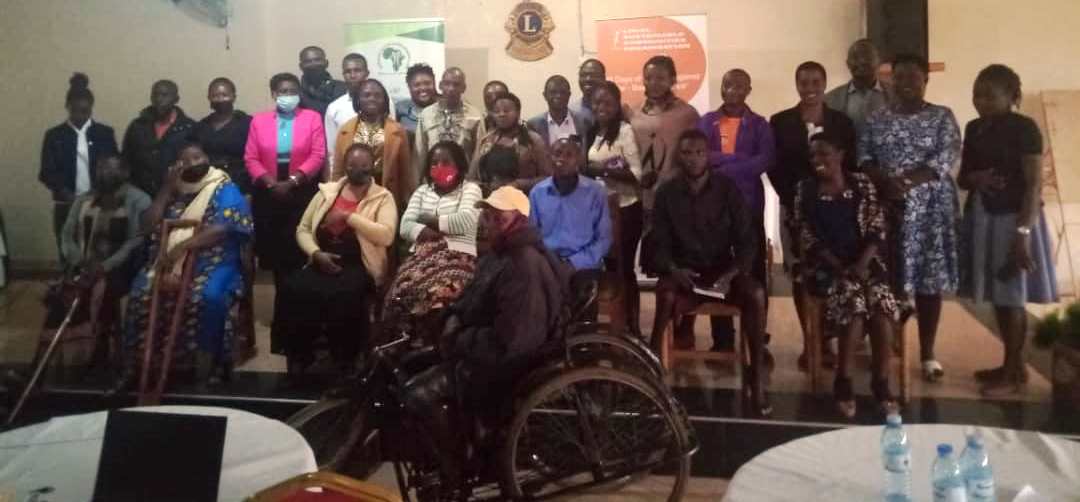
NEXT
BRIEFS FOR THE 3RD LOSCO AGM 29th January 2022 at WHITE HORSE INN HOTEL KABALE
This was the 3rd AGM for LOSCO. The First was held with the members that had been part of the original Kigezi Sustainable Communities Organisation (KISCO) when it had been registered in 2020. The Second was conducted as part of the Revival Outreach Ministries as at the time it was being handled under the Ministry in 2021. Today after several discussions and consultations, LOSCO holds her first Independent AGM though third from Inception.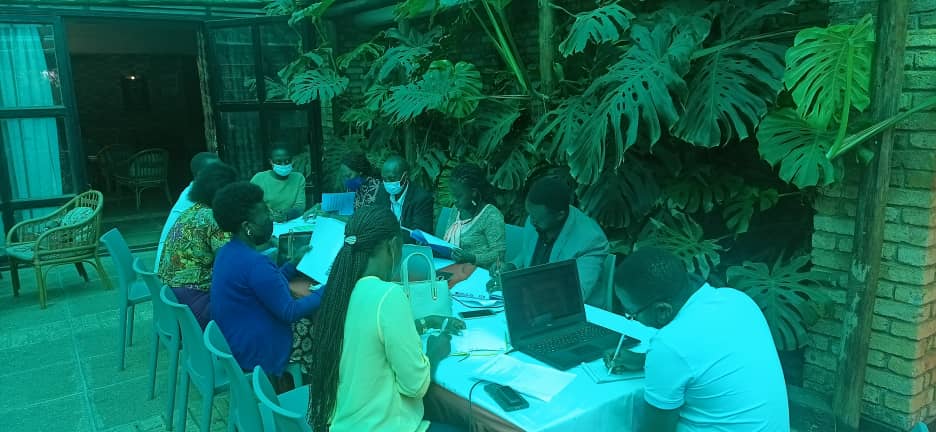
LOSCO emerged because of informal discussions and sharing of experiences between Women Leaders, Social Workers and Local Community Development Workers where the marginalised women participants testified to the extent that the development effort had failed to respond to the marginalised community. One of the reasons for the lack of marginalised programming was attributed to lack of appreciation of the role and impact that this distinct vulnerable population had on advancing the development process. It was observed that development partners in Uganda required support for including the marginalized communities in decision making, strengthening management capacity, and accessing current information on Human Rights, Health, Education, Digital and Infrastructural development.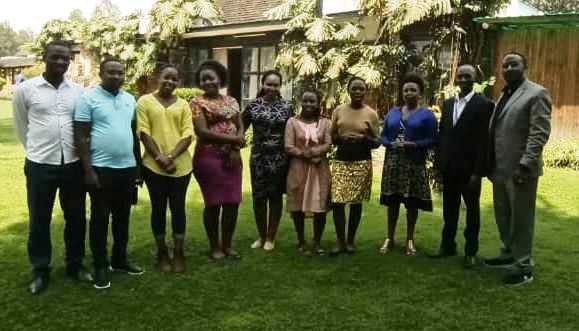
The summary of financial report highlighting the statement of incomes and expenditures and the Financial position of LOSCO for the year ended 31st December 2021. These reports were compared between 2020 and 2021.
- Total Income amounted to UGX 199,310,000/= which was a reduction of 17.5% from the previous year’s income of UGX 241,686,000/=.
- Total Expenditures amounted to UGX 204,776,800/= which was less than the previous year’s expenditures of UGX 264,707,950 by 22.6% because of the reduction in income.
- In the statement of financial position, shows that there was a great improvement and visible stability in 2021 compared to 2020 focused more on programming.
LOSCO has been making progress about Human Rights work and has established relationship contacts with local structures as Uganda Police, Uganda Association of Women Lawyers (FIDA Uganda). CBOs, Health Institutions, Legal Institutions, Education Institutions, Religious Institutions and CSO Networks and NGOs as presented in the Annual Report. LOSCO has also worked with Members of Parliament and other institutions according to their niche of Human Rights Advocacy.
Its not been an easy journey but one we can rightfully celebrate and by the Grace of God, we are here today.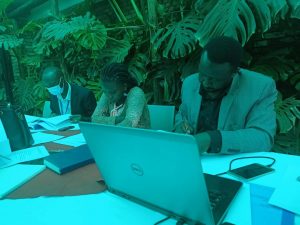
Appreciation goes to the Donors, Partners, Friends and Stakeholders without forgetting the beneficiaries that have made it possible for LOSCO to succeed in the programming and the activities geared towards transforming communities.
NEXT
TREE PLANTING ACTIVITY REPORT
THEME: “PLANTING TREES AS WE CHANGE THE NARRATIVE ABOUT CIVIL SOCIETIES”
INTRODUCTION
LOSCO and its partners, with support from OXFAM and Narratives Pilot project designed activities around tree planting so as to promote a government development agenda, but also use the opportunity to open channels of communication between the Government, civil society, and citizens.
During the 2021 general elections, like was in previous elections, LOSCO in Partnership with CCEDU noted widespread violence against members of the opposition, intimidation of the opposition, civil society and the media by state actors. Uganda has had a history of elections marred by administrative and logistical challenges that can only be dealt with through a shift in the narrative increased number of case of Domestic Violence and mass murders. As part of strengthening the narrative dimension in Uganda, civil society conversations will converge around tree-plating activities and situating the tree-planting drives as a key precursor for the promotion of a healthy electoral environment and human rights situation in Uganda. 
The purpose of the conversations will be to create a narrative that deconstructs bad elections and deepens the understanding of the citizenry on the need for progressive development. The goal is to shift the power back to the citizenry through the narratives. This will directly deal with the frustration and mistrust that the citizenry have in Ugandan Leaders. The idea was to promote beliefs and values in progressive Ugandans (audience) that we have the power to change the decaying leadership narratives with Special focus on the youth and local leaders as well as women because it is they that will find value in planting trees for posterity.
The tree planting campaign first took place in Wakiso, Masaka and now Kabale and will close off in Mbale, Mayuge and Kampala. The tree-planting drives will continue to be used to engage the communities on the best ways we can jointly work together with the Government to promote democracy, human rights, and fulfilling Government programs.
AIMS AND OBJECTIVES
The main objective of the tree planting campaign was to change societal and community narratives towards Civil Society Organizations. Furthermore, the following were achieved in the Process:
1) To provide a platform rejuvenate the environment;
2) To build capacity and popularity of communities to understand the role of CSOs towards development and good governance.
3) To engage policy makers, government institutions, and other key stakeholders on the need to enhance effective community participation and inclusion.
CONTRIBUTION TO SDGs
The tree planting campaign is also well aligned towards Uganda’s National Development Plan III (that aims at promoting resilience and wealth creation) , the National Agenda on Sustainable Development Goals, SDG5 (Gender Equality), SDG6 (Water and Sanitation), SDG7(Affordable and Clean Energy), SDG11 (Sustainable Cities and Communities), SDG12(Responsible Consumption), SDG13(Climate Action), SDG15(Life on Land), SDG16(Peace, Justice and Institution) and SDG17(Partnership for Development) as well as Vision 2030 priorities towards rejuvenating of the environment and improving community participation towards environmental protection for sustainable development.
Having experienced the high rate of environmental degradation in communities, the rate of carbonization has increased due to an increase in urbanization and human activities; this campaign is also informed by the community mindset towards CSOs to reform environment as well as building sustainability.
OUTCOMES
The tree-planting platform was used to create positive conversation around Human Rights, Domestic Violence, and Electoral Democracy. This was to deconstruct dominant hostile narratives that have delegitimized roles of citizens in democratic and fair processes. Planting trees, developing and sharing messages through campaigns around the tree planting for a stable future was the focus. Messages were developed and shared during the tree planting exercises to re-energize citizens on their role to development processes. Women and youth, key government actors were reached out to and Human Rights advocates and Activists in the different areas led it. The Activity took place in the Sub county of Kyanamira, Ndorwa East Kabale District.
PARTNERS
The Activity was carried out by LOSCO Membership infrastructure to CCEDU, NCHRD-U, DPI and Defend Defenders with support from OXFAM and NARRATIVES PILOT PROJECT.
CONCLUSION
LOSCO with its partners will continue to engage communities and the Local Government to ensure that the narrative towards CSOs is changed and to support the Government to achieve its goals.

Lorem ipsum dolor sit amet, consectetur adipiscing elit. Ut elit tellus, luctus nec ullamcorper mattis, pulvinar dapibus leo.
